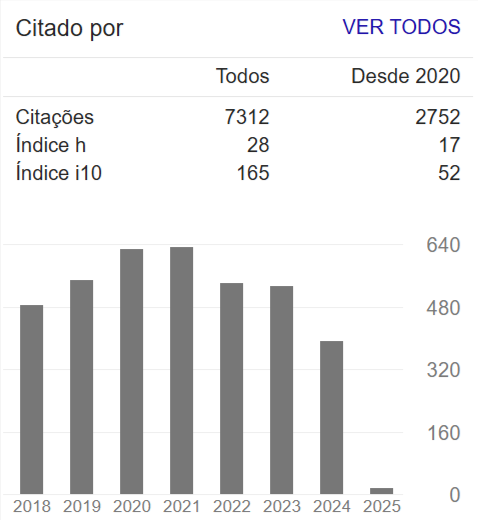Underground waters as an alternative of subsistence in a rural community in the brazilian semi-arid
Abstract
In semi-arid regions due to irregular rains, periods of drought, the climate and other characteristics, groundwater becomes an alternative for human and animal supply. The present study was carried out in the municipality of Caraúbas-RN, specifically in the rural community called Sítio Retiro, with the objective of studying the use of underground water resources for subsistence and living with drought in a rural community in the Brazilian semiarid region. The work is recognized as an exploratory survey and was obtained through field inspections, recognition of the study area and accompanied by a photographic record of relevant points in order to understand how this natural resource is used by the residents of that rural community. The survey was carried out in the months of October and November 2018 and verified how the use of groundwater is carried out, where later the management of this resource was evaluated in accordance with the current environmental legislation, such as the identification of actions aimed at the control and management of such a natural resource. The use of water contributes to the rural development of the 5 families observed and is carried out solely by capturing it in underground reservoirs with the aid of hydraulic pumps, with priority use for animal feed and crops, favoring family farming, in addition to ensuring the permanence of man in the water supply and household autonomy. This technique contributes to the situation of scarcity in view of the local water availability, however, it is necessary to adopt control and management of water resources, which can be done through the implementation of river basin committees.

















